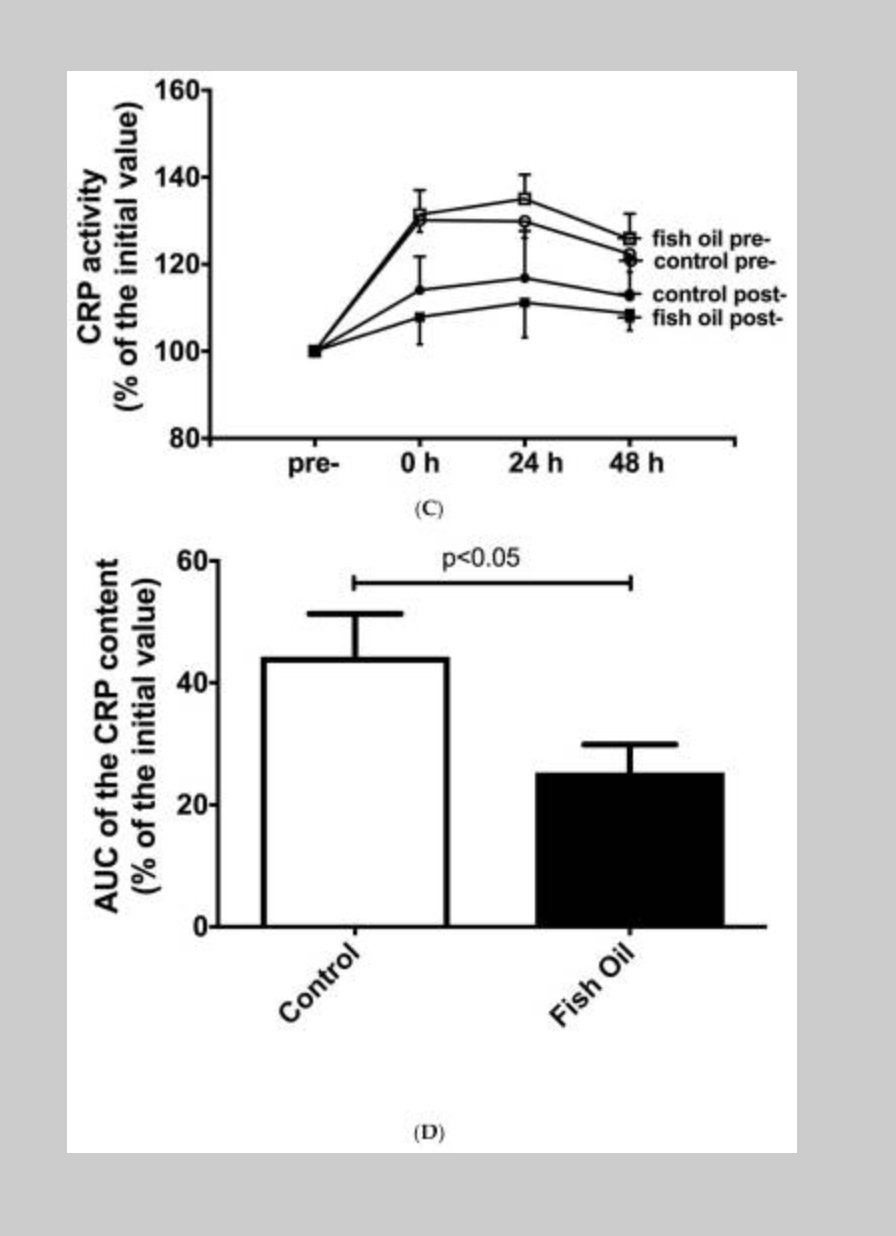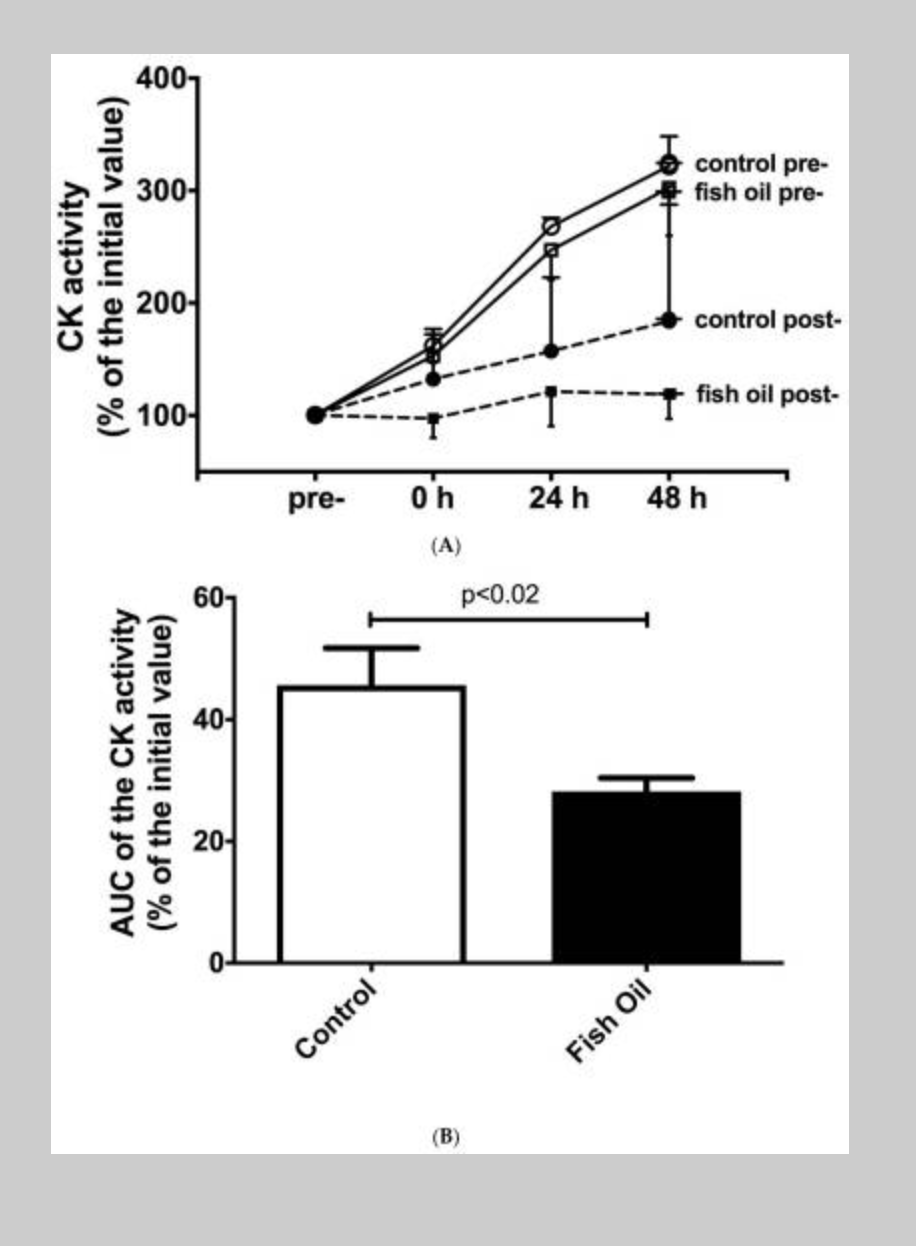
It is pretty well known that exercise causes damage and stress. When properly managed, these responses help drive adaptation and growth.
However, when these processes are not properly managed, they can compound, resulting in hindered performance and progress.
Today, The Research Desk dives into a study examining the natural responses to training and how supplementing with omega-3 fatty acids, namely fish oil, can help promote these processes.
.png)
.png)
.png)





PMID: 37049548
In this study sixteen untrained young men underwent six weeks of strength training while supplementing with either a placebo or fish oil (780 mg EPA and 606 mg DHA) daily.
Biomarkers of muscle damage (Creatine Kinase and Lactate Dehydrogenase) and inflammation (IL-6 and C-reactive Protein) were measured after an initial hypertrophy training session (baseline) and post-intervention (with the addition of redox balance) for 48 hours after the training sessions.
The initial results were expected; exercise increased markers of inflammation and muscle breakdown. After training, all participants saw reductions in markers of muscle damage and inflammation. Despite these improvements, those taking fish oil saw greater reductions than those on the placebo. Additionally, researchers examined markers of redox in the second testing session and found that the fish oil group also outperformed the supplement there as well.
There are three big topics in this study.
The first is that a healthy active body has mechanisms that will actively protect itself from further damage. This is called the "Repeated Bout Effect". This helps protect against excessive damage and inflammation, resulting in reduced soreness and shorter recovery time.
Second, fish oil supplementation amplified these processes. Though the process isn't entirely understood, researchers believe that fish oil might protect against muscle damage through cellular modification by omega-3 fatty acids.
Fish oil has also been shown to work through several anti-inflammatory pathways. Authors of this article specifically call out the activation of the GPR120 pathway, the generation of anti-inflammatory and/or pro-resolution lipid mediators, and the reduction of pro-inflammatory lipid derivatives.
Fish oil supplementation helps promote anti-oxidative defenses by increasing and decreasing oxidized glutathione, good markers of anti-oxidant capacity.
Omega-3 fatty acids have solidified their place as a nutritional necessity, especially fish oil. This study alone calls attention to its ability to help support resilience, cellular health, toxic load, and inflammation functional areas.
Other research suggests its ability to support cardiovascular performance and brain chemistry.
Clearly, consumption of omega-3’s, and specifically fish oil, is extremely beneficial for optimal performance.
Recommendation: Supplement with at least 3g of fish oil daily and eat at least two servings of fatty fish a week. Following these recommendations together will help ensure adequate omega-3 consumption and optimal support.
Explore the Vitality Encyclopedia to learn more about these topics.